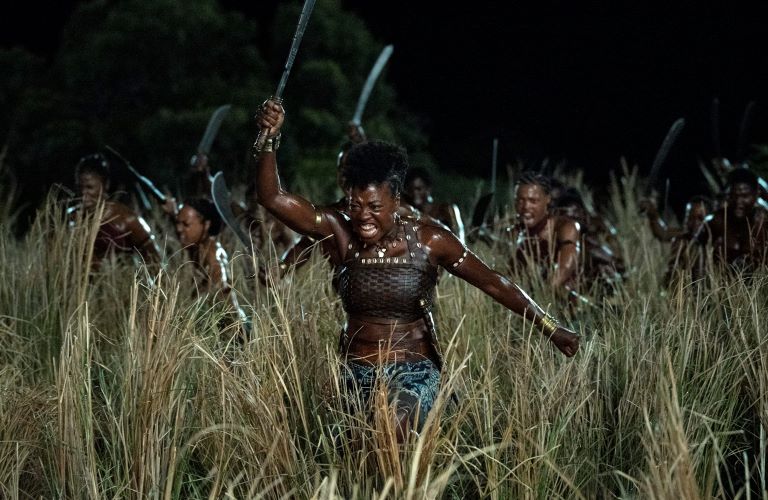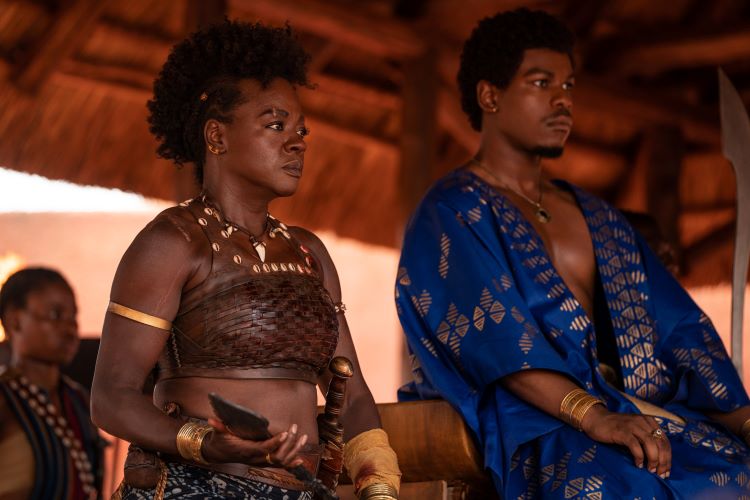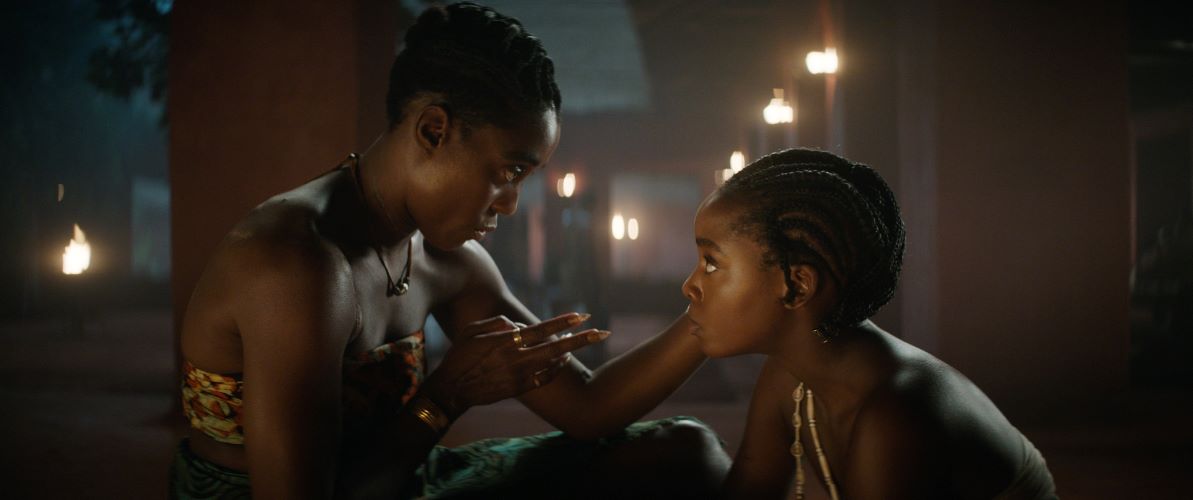Exhilarating, suspenseful and moving, The Woman King is an epic action film that celebrates the power of women. Although the story it tells and its characters are fictional, the army of women it describes, the Agojie, is based on historical fact, making it even more inspiring. The Agojie were an all-women military unit in the Kingdom of Dahomey (present-day Benin), active approximately from the 1600s until the beginning of the 20th century. Directed by Gina Prince-Bythewood, the film is set in 1823, during the rule of King Ghezo, who ruled Dahomey from 1818 – 1858. The screenplay by Dana Stevens, based on a story she wrote with Maria Bello, places as much emphasis on the relationships between the women warriors, their resilience, intelligence, and leadership, as it does on the stirring battle scenes. Viola Davis is superb as General Nanisca, her fierce gaze commanding respect from her warriors, and striking fear in the heart of her enemies.

The opening scene sets the tone for the film as the Agojie rise in the night like apparitions, emerging from the tall grasses, and Nanisca lets out a battle cry, leading her warriors to raid a Mahi village and free Dahomey captives. The combat choreography is riveting, and it is thrilling to see the Agojie in action.

The Agojie are revered by their people, who dare not look upon them as they return victorious. The village as well as the ambiance of King Ghezo’s palace are brought to colorful, vivid life with humor and flair. Gersha Phillips costume design for the Agojie resembles that which can be seen in historical documentation, such as sketches made at the time. The ornamented outfits and elaborate hair styling and makeup for King Ghezo’s many wives are delightful and provide a contrast that reflects the dramatically different lives that these women lead. The Agojie do not marry or have children, their lives are dedicated to defending the Dahomey Kingdom.

It is interesting to follow the relationship between the relatively young King Ghezo (John Boyega), who appears at times hesitant in his decision-making, and the wisdom, experience, and confidence of Nanisca. It is in part through their relationship that the film reflects the grim reality of the times – that the Dahomeys, as well as the Oyo and others, were actively engaged in the slave trade, capturing members of rival tribes and selling them to Europeans. Nanisca urges Ghezo to put an end to Dahomey trading in slaves, calling slavery “a poison that is slowly killing us.” I feel that Prince-Bythewood and Stevens utilize the freedom of fiction to make a strong anti-slavery statement, that acknowledges and critiques the Dahomey’s involvement in slavery.
One of the most compelling aspects of the film is the trajectory of young Nawi (Thuso Mbedu) from a rebellious, lonely orphan to become a warrior and part of a community of warriors. Her character belongs to the tradition of upstart, impulsive, young firebrands who burn with the desire to prove themselves. She rebels against her prescribed fate – to be married, or in effect – sold, to a wealthy, older man. Joining the Agojie offers her an alternative. The viewer is initiated into the lives and traditions of the Agojie through Nawi’s training. Charged with training the prospective recruits, Izogie (Lashana Lynch) is demanding, strict, and fierce, yet also reveals flashes of humor. Lashana Lynch creates a memorable, moving, character, a courageous leader and compassionate mentor.

As enthralled as I was by the superb choreography and a narrative focused on women’s strength, some of the subplots within the film felt too melodramatic, the different parts of the subplot connecting too neatly. From my perspective, the camaraderie, mutual respect and loyalty among the Agojie – as seen in training, at their compound, and in battle, was a far more powerful aspect of this story. Yet at the same time, a romantic subplot in the film, while not my favorite, does raise an interesting and important issue. In the narratives of heroes and warriors, men’s narratives often allow the protagonists to experience and act on their sexuality, while narratives focused on women typically require their protagonists to renounce their sexuality in order to take on roles as warriors and leaders. So although I’m not fond of the way this plot element unfolded, I fully support warriors fighting to retain their sexuality, their humanity.
The Woman King
Director: Gina Prince-Bythewood; Screenplay: Dana Stevens; Story: Maria Bello, Dana Stevens; Cinematography: Polly Morgan; Editor: Terilyn A. Shropshire; Music: Terence Blanchard; Cast: Viola Davis, Thuso Mbedu, Lashana Lynch, Sheila Atim, Hero Fiennes Tiffin, John Boyega





